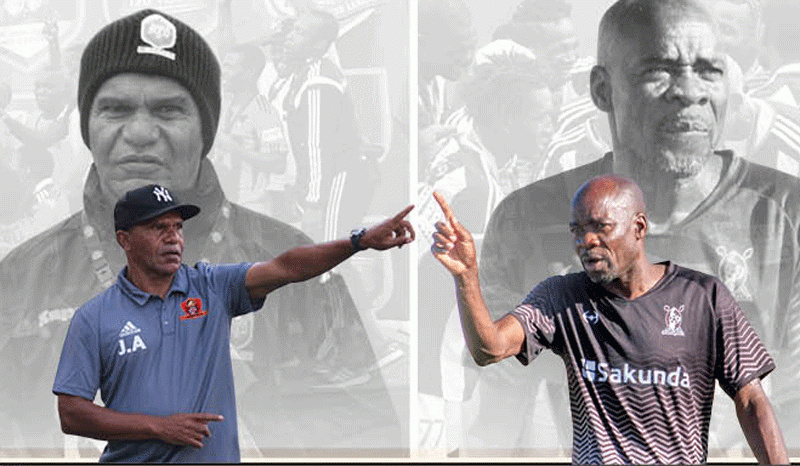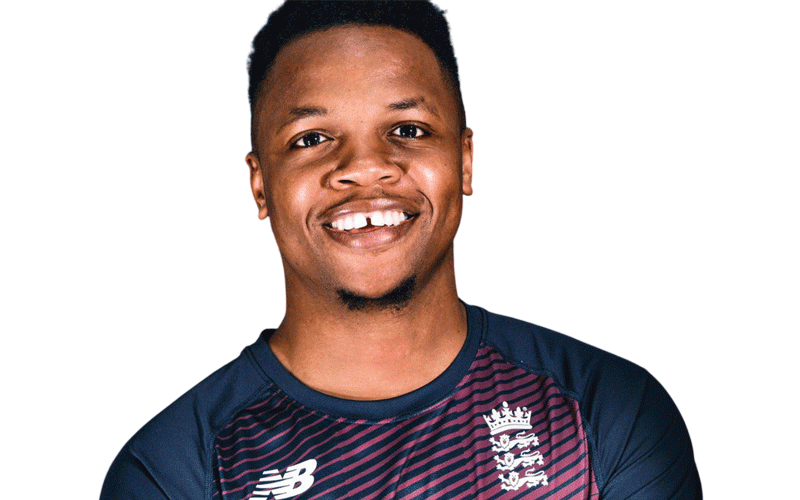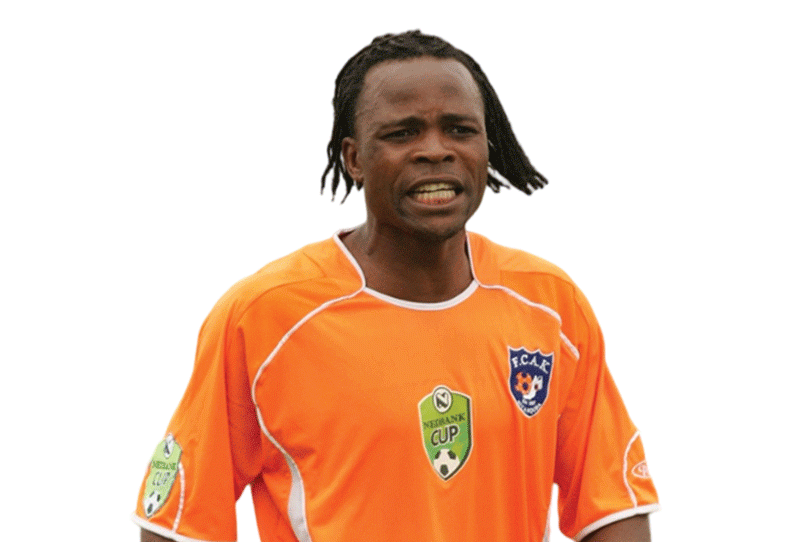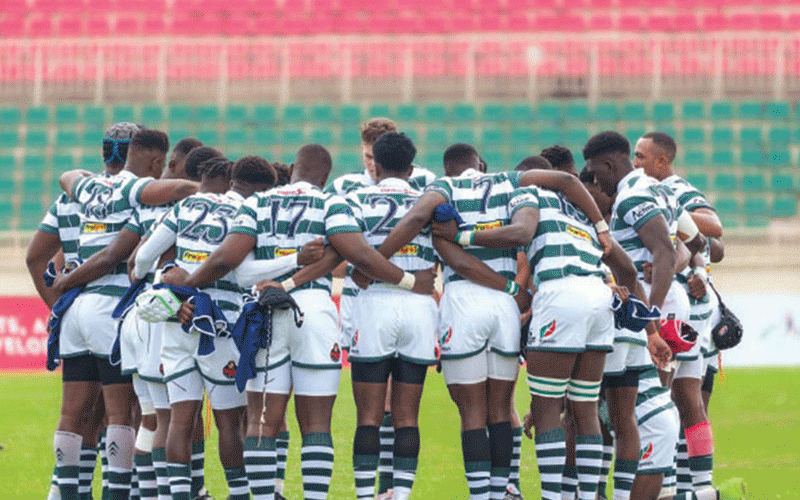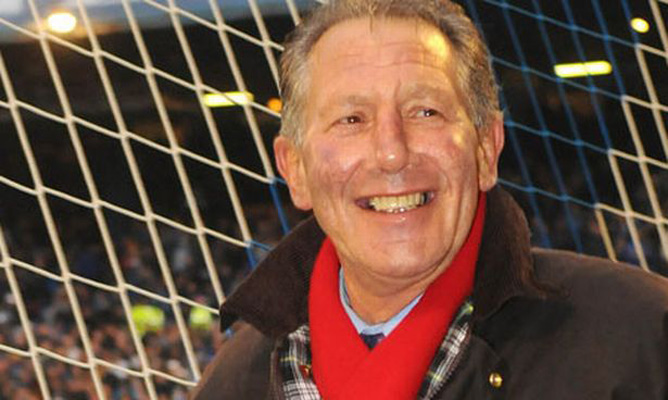
ZIMBABWE football giants, Dynamos and Highlanders, seem to be reading from the same script in preparation for the upcoming 2016 soccer season.
Brian Nkiwane
Both teams have pushed off their old guns who were in charge of the teams last term, opting for foreign coaches.
Dynamos have roped in Portuguese mentor Paulo Jorge Silva who has a very rich curriculum vitae after being involved with big clubs in Europe and Africa.
As for Highlanders, the Bulawayo giants have opted for Dutch mentor Elroy Akbay who arrived in the country in November and had the opportunity to watch a few league matches.
DeMbare have left their former player Tonderai Ndiraya in the cold. His contract was not renewed, while Bosso decided to reduce Amini-Soma Phiri and technical advisor Cosmas “Tsano” Zulu to assistants who will be helping the new coach. Highlanders started engaging foreign coaches as early as the 1980s when Zulu worked with Bobby Clark who many credited for the once vibrant Bosso junior policy.
Zimbabwe Soccer Coaches Association (Zisca) chairman Beki Nyoni said there is every season for people to respect the decision the two giants have taken.
“In as much as I understand that it’s some of my members that would be out of employment, we have to respect the decision taken by Highalnders and Dynamos,” Nyoni said.
- Chamisa under fire over US$120K donation
- Mavhunga puts DeMbare into Chibuku quarterfinals
- Pension funds bet on Cabora Bassa oilfields
- Councils defy govt fire tender directive
Keep Reading
“If people have their idea, we need to give them time to implement it. It’s not in Zimbabwe only where we see foreign coaches coming, even in Europe it’s happening and that cross pollination of coaches brings about new ideas that can be shared for the betterment of local football.”
Veteran broadcaster Charles Mabika said it was Clark who was the brains behind the famous Highlanders junior policy which brought into the fold the likes of Warriors legend Peter Ndlovu.
“He might not have been the best foreign coach and might not have done much in terms of success for the senior team, but he was the man behind the Highlanders junior policy which yielded a number of players who later became stars of the league,” Mabika said.
Bosso went on to hire Briton Eddie May (late) who happens to be one of the most successful foreign coaches to have come to Zimbabwe and Highlanders. Zambians Dick Chama [late] and Freddie Mwila also had stints with Bosso before Egyptian Mohammed Fathy arrived. The last foreign coach to manage Bosso was former striker Kelvin “KK” Kaindu.
DeMbare’s first foreign coach came in the early 90s when the then executive brought in Polish coach Gurran Pesic. He was followed by Clemence Westerhoff and the late Zambian Keegan Mumba.
In the history of Zimbabwean league football, only Kalisto Pasuwa has performed better than May at Highlanders.
Pasuwa won the championship with Dynamos four consecutive times, as well as the country’s richest football tournament — Mbada Diamonds Cup — twice, among other tournaments. Statistics show that May is the second best coach in the history of Zimbabwean football, having guided Highlanders to two championship titles in 2001 and 2002.
Mabika saluted the country’s biggest clubs for bringing in foreign coaches.
“If you look at Highlanders, foreign coaches have done better, but I think it will one day work for DeMbare as well. I understand these two [latest] coaches have done duty at highest levels and have contacts which will make it easier for our players to move to other leagues. From that angle, I think it’s the best that they have done,” Mabika said.
But former Highlanders striker Zenzo Moyo had a different opinion.
“I think at the end of the day, local football will be the biggest loser. We have a number of local coaches that are learned to that level. Why not give them a chance to shine? We need to promote our own coaches to the extent that they go there and be employed as coaches as well. But it’s the decision of those at the top, what can we say,” Moyo said.
A Highlanders team that was put together by Madinda Ndlovu in 1998, was taken over by Rahman Gumbo and went on to win two titles in a row; in1999 and 2000.
Gumbo left Bosso to pave way for May who won the title in 2001, the Charity Shield and the Independence Trophy. In that same year Bosso also won the Zifa Unity Cup.
In 2002, Bosso, still under May, won the league title and also bagged the Independence Trophy.
All in all, May won two titles and four trophies in the two seasons that he was with the Bulawayo giants.
Mwila came in 2003 but for a short while and left empty-handed.
Zambian Chama took over at Highlanders in 2004 but had little success. His team finished second to CAPS United and lost in the finals of the Independence Trophy to Dynamos at the National Sports Stadium.
In that year, Bosso bowed out of the Buddie Challenge Cup in the first round after a 5-3 penalty shootout against Hwange.
Another foreign coach Fathy joined Highlanders mid-season 2009 and helped Bosso finish fourth on the log standings.
Fathy’s acid test came in 2010 when he managed to lift Bosso to a third finish on the log.
That year Bosso lost in the finals of the Independence Trophy to Dynamos. Fathy also reached the semifinals of the BancABC knock out tournament but lost to DeMbare 1-0 in the finals of the Zaoga Challenge Cup.
The 2012 soccer season saw the emotional return of former striker Kaindu, but this time in the dugout.
In his first season, Kaindu guided Bosso to a second place finish, tied on points with DeMbare who won the championship with a superior goal difference.
Bosso lost to DeMbare in the finals of the Independence Trophy 2-0 at the National Sports Stadium.
In 2013, Kaindu guided Bosso to another second place finish, this time tied on 54 points with Dynamos and newcomers Harare City.
His side lost 1-0 to Dynamos in the Independence Trophy, with Murape Murape scoring the only goal of the match.
Bosso also lost to DeMbare in both legs of the Bob 89 Cup 2-1 in Bulawayo, before a 4-0 drubbing in Harare at Rufaro.
Bosso lost in the first round of the BancABC knockout tournament to FC Platinum.
Kaindu’s greatest achievement at Highlanders was on November 30 2013 when he beat How Mine 3-0 to lift the country’s richest knockout tournament — the Mbada Diamonds Cup.
In 2014, Bosso lost to Dynamos again in the finals of the Bob 90 Cup. Kaindu also lost to FC Platinum in the semifinals of the Uhuru Cup, and suffered a 2-1 loss to Chapungu in the semis of the CG Msipa Charity Shield.
Bosso lost again to FC Platinum in the semis of the Zimbabwe National Army Charity Shield.
Kaindu was eventually fired towards the end of the season and his assistant Mark Mathe had to guide the team to a fifth place finish. As for the Glamour Boys, Pesic was only in charge of the Boys in Blue for 10 games, winning eight, losing once and drawing once. He never won any cup.
Westerhoff too had a short stint with DeMbare, but left with nothing to show for his stay.
The only coach who almost made it with DeMbare was Mumba who came third in 2003 after three points were docked by then Premier Soccer League fixtures secretary Mwandibuya Mutepfa for using an ineligible player, Edmore Mufema.
For Highlanders, foreign coaches seem to have worked wonders, but the opposite is true for DeMbare.
Former player and coach Sunday Chidzambwa reached the finals of the Champions League in 1998, while David Mandigora also reached the money-spinning phase of the same competition 10 years later
Pasuwa did it with distinction, winning the championship four times in a row.
Player manager, Gibson Mahachi, who is also Pasuwa’s manager, says it is easy when those at the top judge coaches using statistics.
“We have statistics of how local coaches and foreign coaches have performed. So it will be up to the administrators of any club to say we have a good coach,” Mahachi said.
“But generally, we need to support our own if they are there. But if they are not there, what can we do? We go with what is there.” Premier Soccer League (PSL) chief executive officer Kenny Ndebele thinks the world has become a global village and therefore coaches must move from one country to another, sharing football knowledge.
“The world has become a global village. There is need to share football knowledge. I don’t see anything wrong with clubs hiring foreign coaches, as long as they bring results,” Ndebele said.

